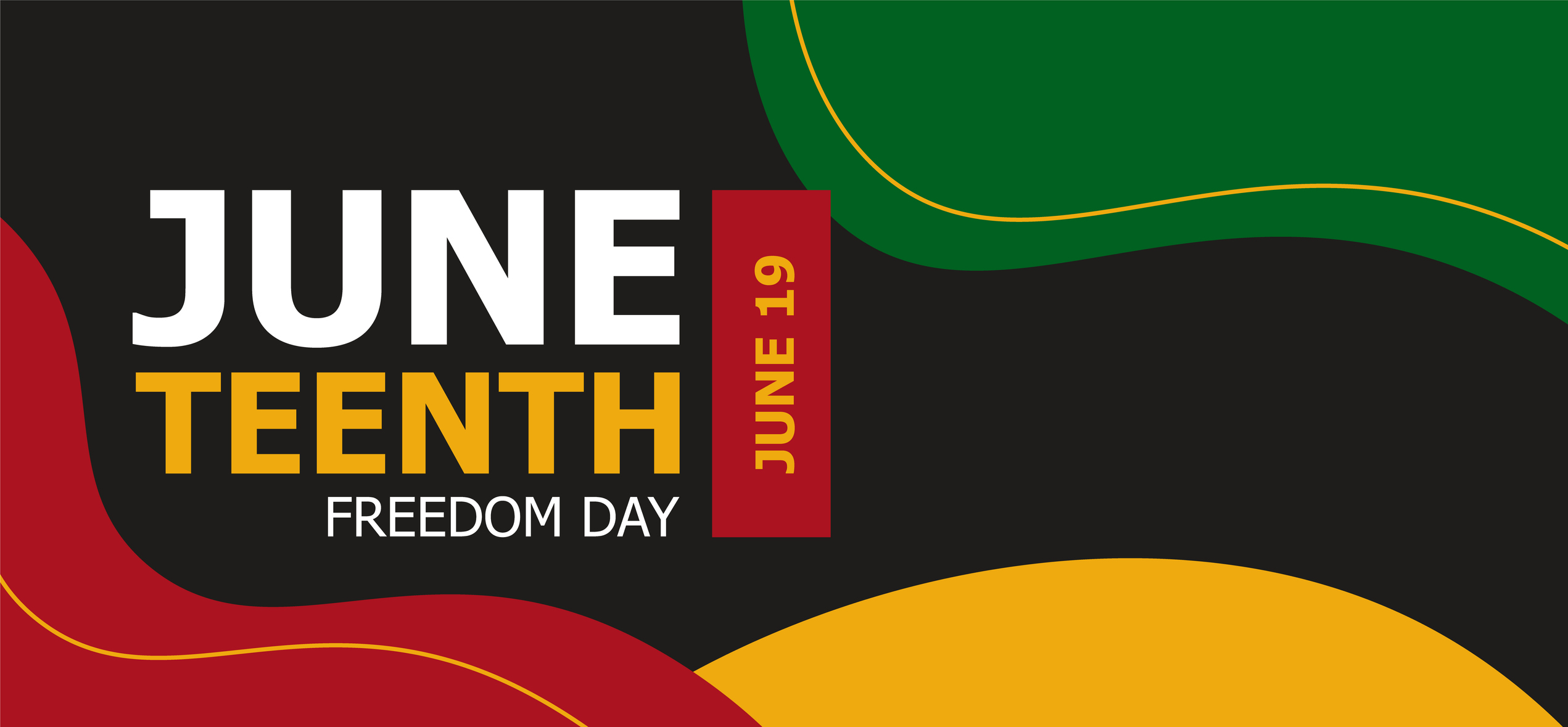What it means to recognize Juneteenth
June 14, 2022“Do the best you can until you know better. Then when you know better, do better.” – Maya Angelou
As I reflect on Juneteenth this year, this quote continues to reverberate in my mind. After two tumultuous years of racial trauma due to the murder of George Floyd, the disproportionate impacts of COVID-19 and the unabated rampage of white supremacy on Black and Brown psyches and bodies, I wonder – have we done the best we can? What have we learned? Are we doing better?
On June 19, 1865, in Galveston, Texas, the last of an enslaved people walked free for the first time. Annually we celebrate this milestone on what is known as Juneteenth – the combination of the words June and nineteenth – and honor the resilience of a people who were able to persist long enough to overcome slavery. This year, we commemorate the emancipation of an enslaved people as a nationally recognized federal holiday.
While some dismiss this recognition as a federal holiday as trivial, inconsequential and even pacification, I chose to celebrate this distinction as monumental. The elders in my life, who are but a few generations removed from the insidious institution of chattel slavery, and the Black masses, whose existences are intertwined with mine, indulge in Juneteenth and this new federal distinction with jubilation and triumph. This nation finally acknowledges, in a specific way, the historical tenacity and present-day enormity of Black people. Frankly, my elders, the Black masses and I appreciate being seen in a nation that for far too long chose not to see us.
It is with this context that I continue returning to Black matriarch Maya Angelou’s quote on this Juneteenth.

What have we learned?
Have we done the best we can since the racial reckoning of 2020? Yes and no. We, as the Black community and this nation by extension, have erected various new initiatives and institutions for Black amelioration that previously were unattainable. We have moved organizations and communities to commit to Black liberatory ideals and ideologies with people, resources and power. And yet, we have also encountered repressive and regressive actions fueled by white fears of replacement and retribution. We have witnessed a reignition of white grievance counter measures that have resulted in the banning of Black and Brown books, legalized and targeted voter suppression and the proliferation of white supremist slayings of Black and Brown people across our country.
What have we learned over the past two years? We have learned that despite the many barriers and obstacles in the way of true liberation, Black folks know no other way for progress but to relentlessly keep pushing. We have learned that there is less and less allowance for occupying the safe space of “middle ground” when it comes to combating white supremacy and its impact on us and our wellbeing. We have also learned that white supremacy will not and does not go away quietly if we stay silent and siloed. In the collective – unapologetically and with great intention – is how we dismantle racism and white supremacy for the betterment of all.
Are we doing better as we move through the aftermath of 2020? It’s complicated. We are applauding and supporting Black excellence – Black creatives, entrepreneurs, intellectuals and businesses – in large multinational corporations and in local niche spots, and utilizing Black excellence and industriousness to craft innovative solutions to pressing global issues such as COVID-19 and environmental sustainability. But as is consistently experienced by Black America, progress is accompanied by regress. We are experiencing a renaissance of sorts to overt, unabashed racism being conjured up to reclaim a purported greatness of yesteryear. This restoration project has been concretized in statute, precedence, and behavior. So again, it is complicated.
"Let us continue to do our best"
As we embark on this year’s Juneteenth, let us never forget that on this day, we celebrate the power of a people to persist through uncommon physical, spiritual and mental oppression. Let us indulge in the advancements of Black people with the proper passion that such triumph calls for. While Black people didn’t need Juneteenth to be a federally recognized holiday in the United States of America for us to honor our ancestors, we nonetheless celebrate that accomplishment with delight and pride. Let us continue to do our best to bring about true, lasting liberation for Black people and apply all we learn to act in ways that bring about a better existence for all humanity.
Editor's note: This article originally appeared in the Sahan Journal.


